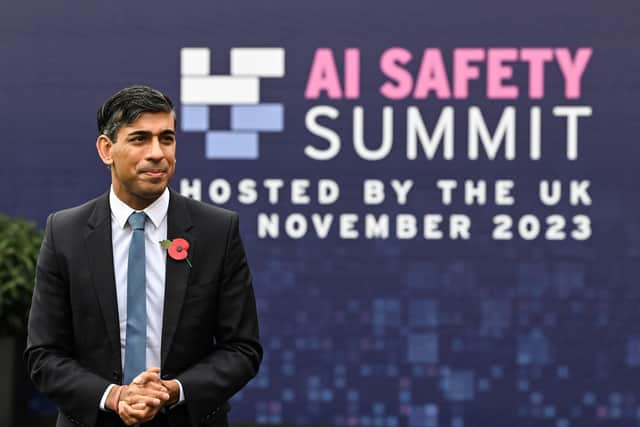AI is not just a technological issue but a societal one that requires a globally coordinated response - Lord Kirkhope
The AI Safety Summit at Bletchley Park last week hosted by the UK government, presented a crucial opportunity to discuss the global implications of Artificial Intelligence (AI).
In a recent House of Lords question to Lord Camrose, I emphasised the need for these discussions to be as inclusive as possible, involving international stakeholders beyond just the UK, in formulating our response to the development of AI.
Advertisement
Hide AdAdvertisement
Hide AdAI is a global entity, and it would be perilous for any single nation or region to forge ahead with regulations without international consensus. The discussions should include experts not only from the UK but also from the United States, China and the European Union. GDPR serves as a useful framework for approaching AI regulation. It encapsulates essential principles that could be adapted for AI, such as data protection, user consent, accountability, transparency and effective safeguards. These principles are not just Eurocentric ideals; they are universal tenets that should underpin any ethical use of technology.


AI holds immense promise for societal advancement. From healthcare to transportation, the technology has the potential to revolutionise various sectors. However, this promise comes with risks. The data that fuels AI systems must be protected rigorously, akin to the safeguards in place under GDPR. The data from individuals, companies, or any entities contributing data to AI systems must have their privacy respected and should have avenues for redress in case of abuse.
It's crucial to strike a balance between innovation and ethical considerations. We should neither rush into regulation without fully understanding the scope of what needs to be regulated nor should we waste time while potential abuses of the technology multiply. The key is to act thoughtfully and collaboratively.
The EU is already making strides in preparing legislation to govern AI, and the United States is also scrutinising these issues carefully. China, too, is progressing in this arena. The UK's approach is important but should not be framed as a race to be the first to regulate. The stakes are too high for a competitive approach. We've seen the dangers of such a mindset in the nuclear arms race—a situation that escalated risks rather than mitigating them.
Advertisement
Hide AdAdvertisement
Hide AdThe British government must recognise that this is not a competition but a collective endeavour. The objective should be to arrive at a balanced, effective regulatory framework that safeguards individual freedoms while fostering innovation. This can only be achieved through international cooperation.
The Bletchley Park Summit is a step in the right direction, but it must be the beginning of a long, collaborative journey. AI is not just a technological issue but a societal one that requires a globally coordinated response.
Lord Kirkhope of Harrogate is the former MP for Leeds North East and MEP for Yorkshire.